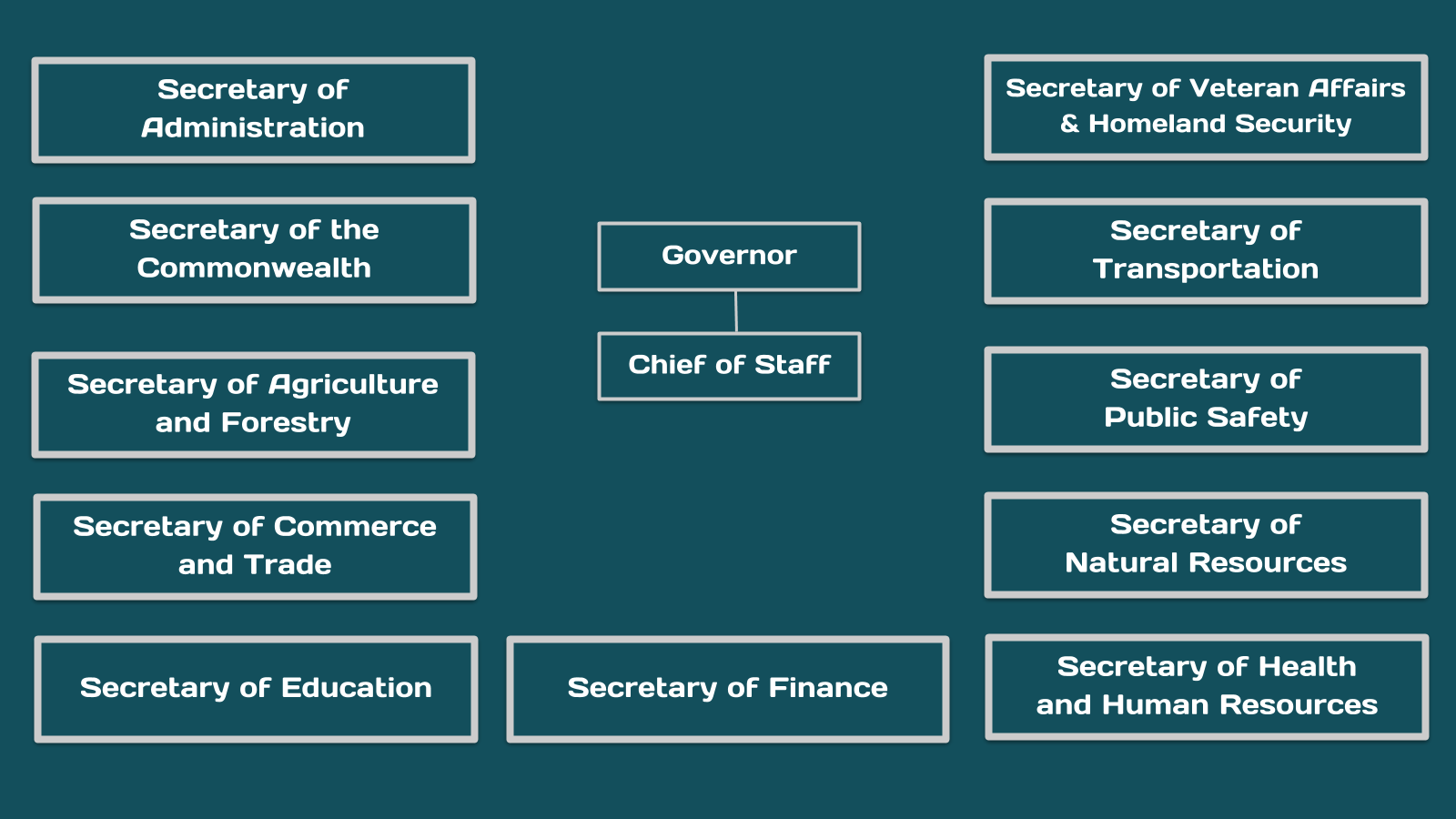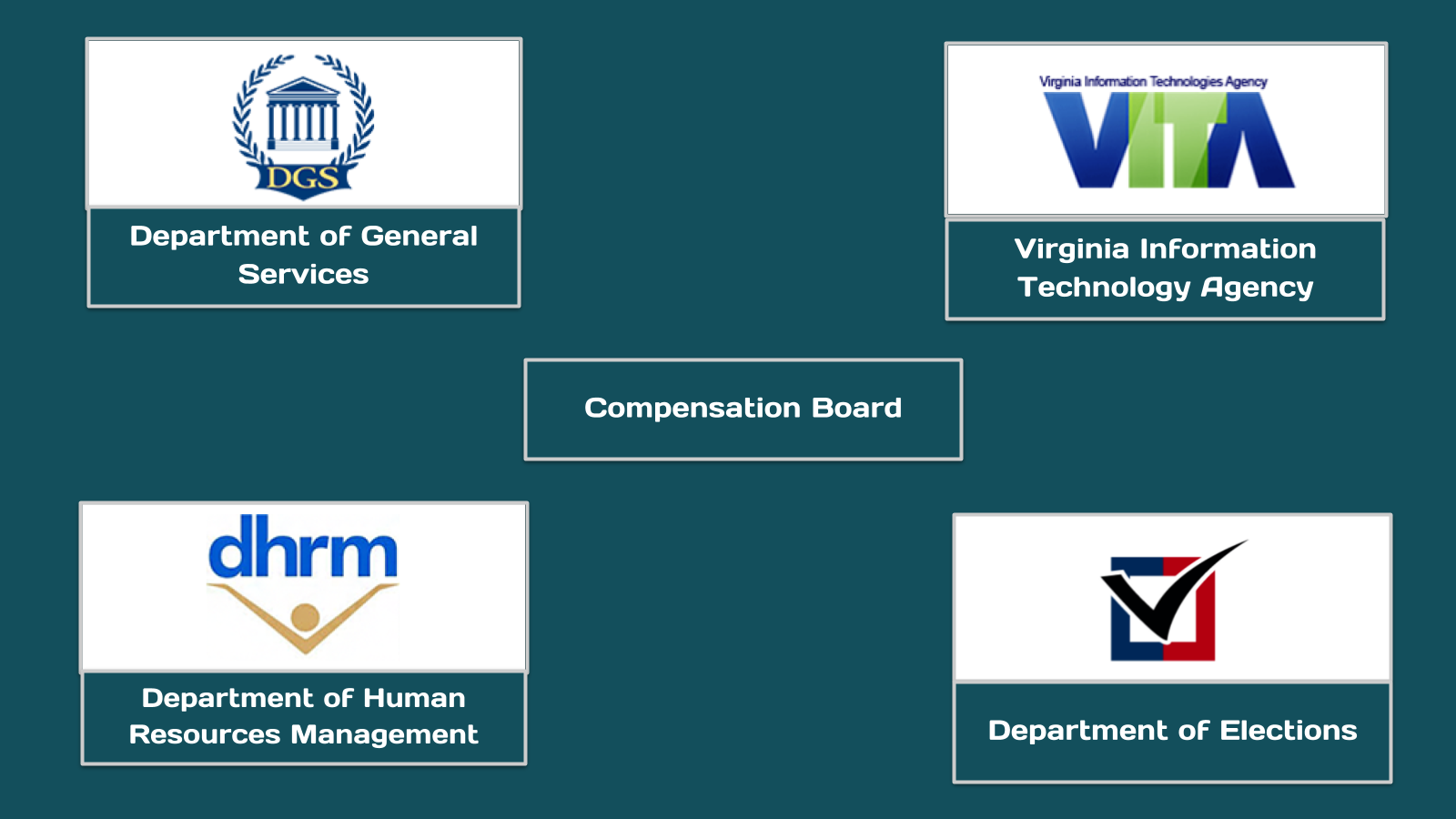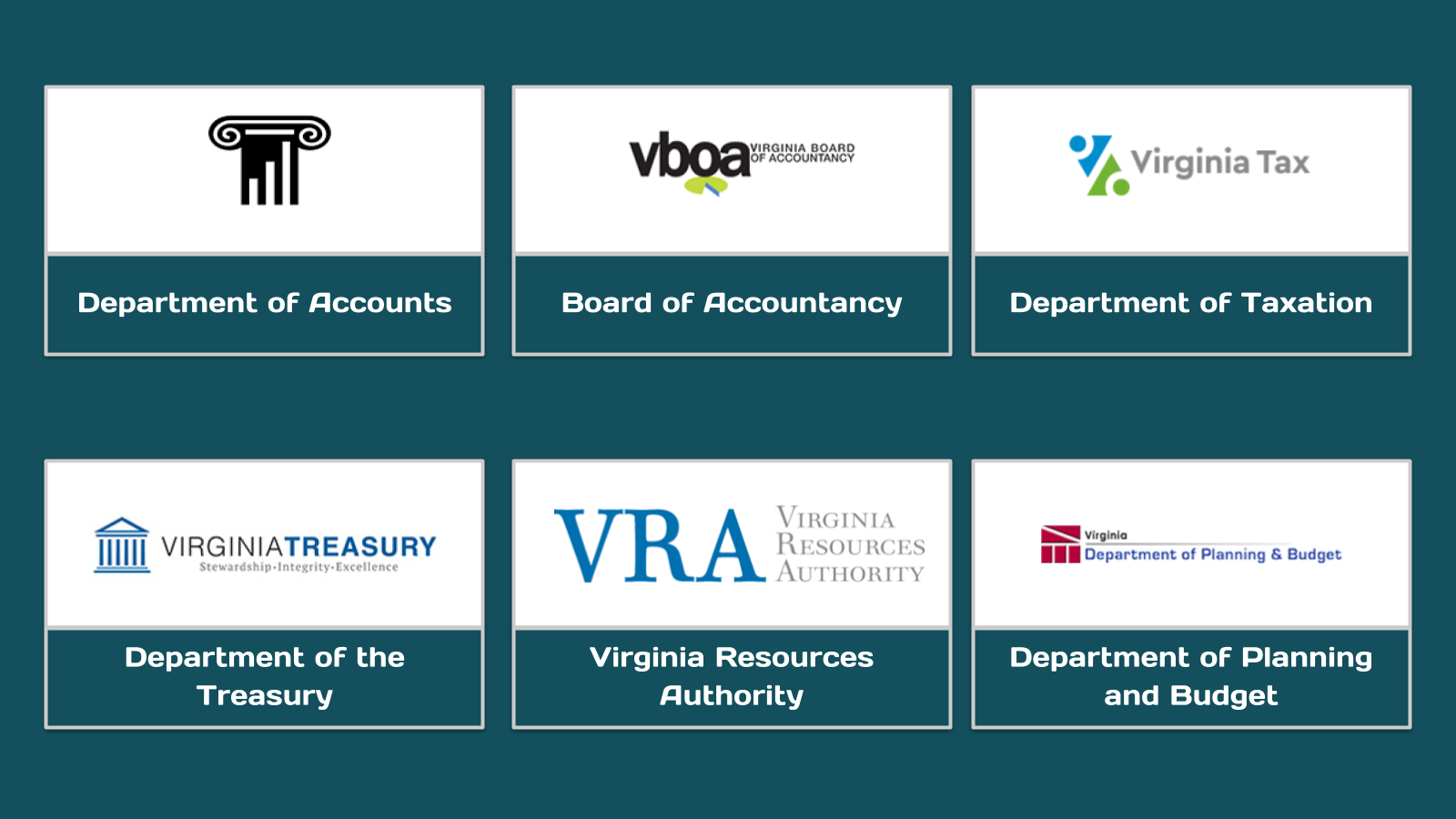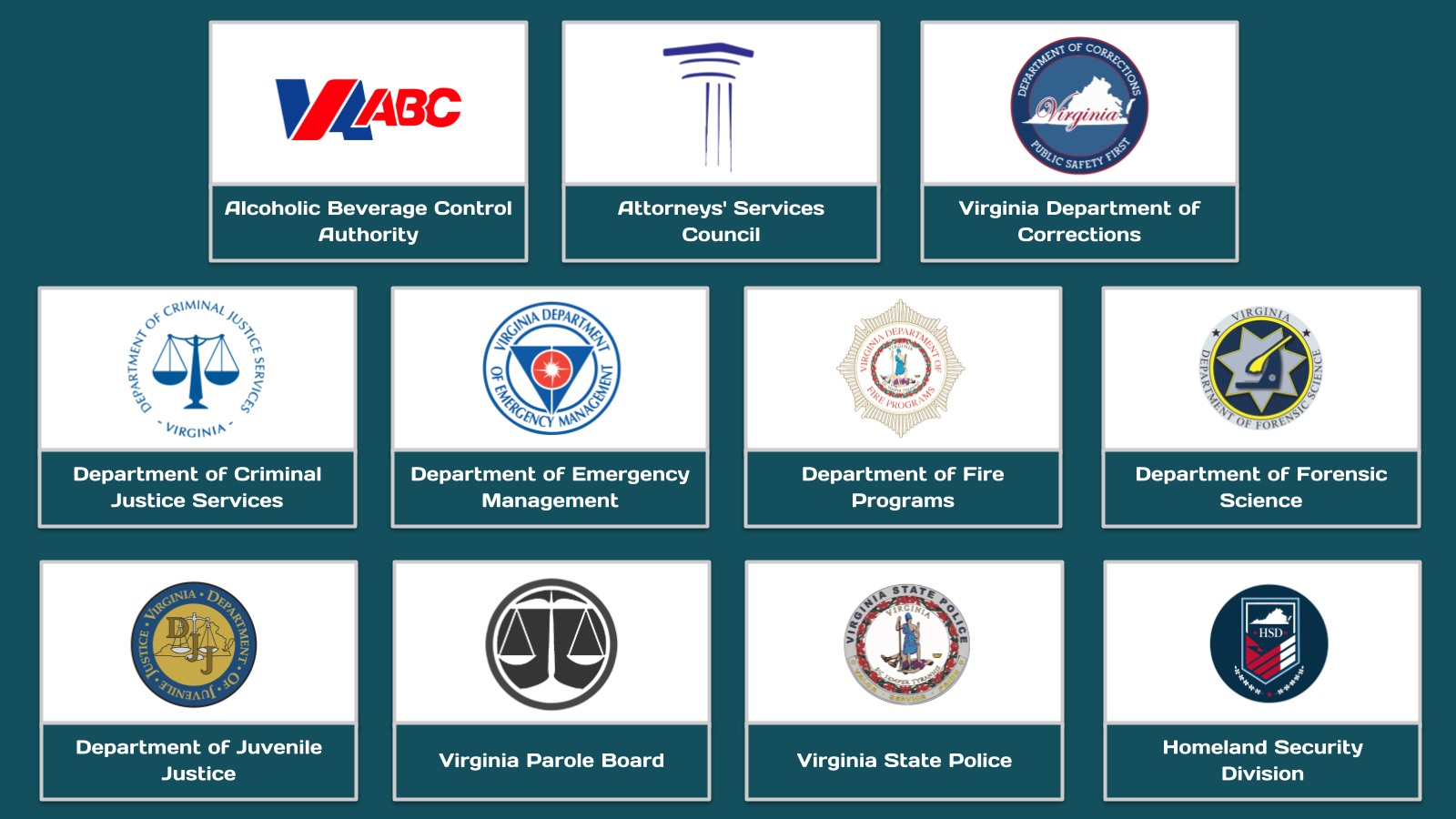The statewide elected officials are governor, lieutenant governor, and attorney general.
All three officers are separately elected four-year terms in years following Presidential elections (1997, 2001, 2005, etc.) and take office in January of the following year. Virginia is one of only five states that elects its state officials in odd numbered years (the others are Kentucky, Louisiana, Mississippi, and New Jersey). The last gubernatorial election was in 2017, and the next will occur in 2021.
The governor serves as chief executive officer of the Commonwealth and as commander-in-chief of its militia. The Constitution does not allow a governor to succeed himself in office (though a governor is allowed to serve multiple non-consecutive terms). The Lieutenant Governor, who is not elected on the same ticket as the governor, serves as president of the Senate of Virginia and is first in the line of succession to the governor. The Lieutenant Governor is allowed to run for reelection. The Attorney General is chief legal advisor to the governor and the General Assembly, chief lawyer of the Commonwealth and the head of the Department of Law. The attorney general is second in the line of succession to the governor. Whenever there is a vacancy in all three executive offices of governor, lieutenant governor, and attorney general, then the Speaker of the House of the Virginia House of Delegates becomes governor.
OnAir Post: VA Executive Branch












